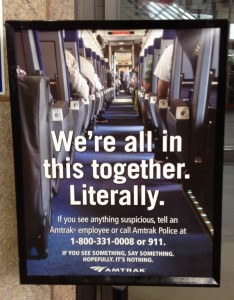Even the most unassuming words can be notable or heroic in their own way. Admit it: you love finding out which words take pride of place in the record books by dint of length or letter order.
And there are some languages, too, that are making their own claims to fame. Can you guess any of them? (All answers – courtesy Guinness Word Records – are under the picture below.)
1. What is the longest word in the English language with only one vowel?
2. What is the longest English word with letters arranged in alphabetical order?
3. What is the longest English word with letters arranged in reverse alphabetical order?
4. What is the longest English word in which each letter occurs at least twice?
5. What is the longest palindromic word (not necessarily in English)?
6. What is the shortest word in the English language that contains all five main vowels? (my personal favorite)
7. What is the most common language?
8. What is the least common language?
9. Which country has the most official languages?
10. Which language has the longest alphabet?
11. What is the most common language isolate (a spoken language that has no discernable origins or commonality with any other spoken language, either current or extinct)?
And finally, without moving too far away from the subject of words and tongues:
12. What is the heaviest weight lifted by a human tongue?

Answers:
1. strengths
2. aegilops
3. spoonfeed
4. unprosperousness
5. saippuakivikauppias (Finnish for a dealer in lye (caustic soda)) *
6. eunoia
7. The most common first language is Chinese, spoken by more than 1.1 billion people
8. The Yaghan language is an indigenous language of Tierra del Fuego. The Yaghan are estimated to have numbered between 3,000 and 10,000 before Argentina and Chile began exploring Tierra del Fuego in the late nineteenth century. Disease, relocation and exploitation caused their population to collapse rapidly, to around 70 people in 1930. Today Cristina Calderón (born approximately 1938), is the only remaining native Yaghan speaker.
9. The country with the most official languages is the Republic of South Africa with 11. These are: English, Afrikaans, isiZulu, isiXhosa, Sesotho, Setswana, Sepedi, Xitsonga, siSwati, isiNdebele and Tshivenda.
10. The language with the most letters is Khmer (Cambodian), with 74 (including some without any current use).
11. A language isolate is a spoken language which has no discernable origins or commonality with any other spoken language, either current or extinct. Basque is the most common, spoken by the Basque people of the Basque country, northern Spain/southern France. This language is spoken by around 600,000 people.
12. The greatest weight lifted with a human tongue is 12.5 kg (27 lb 8.96 oz) by Thomas Blackthorne (UK) who lifted the weight hooked through his tongue on the set of El Show Olímpico, in Mexico City, Mexico, on 1 August 2008.
* Some baptismal fonts in Greece and Turkey bear the circular 25-letter inscription NIYON ANOMHMATA MH MONAN OYIN, meaning wash (my) sins, not only (my) face. This appears at St Marys Church, Nottingham, at St Pauls, Woldingham, Surrey and at other churches.















